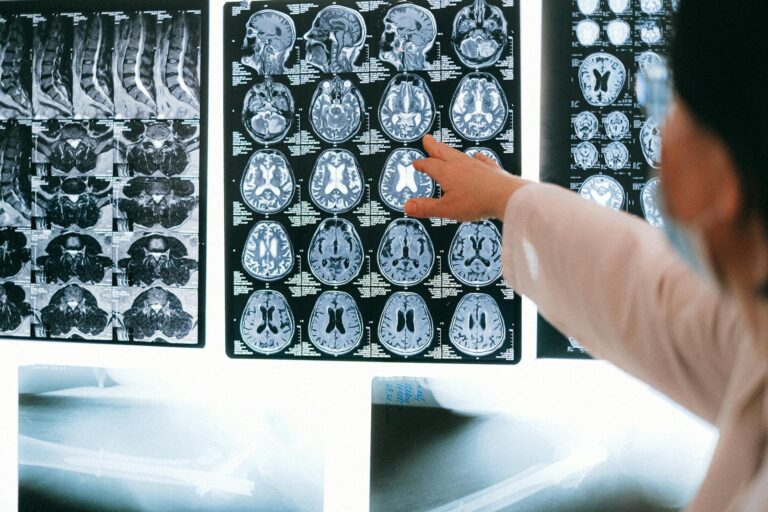When we think of bees, we often imagine them buzzing around flowers, collecting nectar and pollinating plants. However, bees have increasingly become a topic of interest in the medical field, particularly in the realm of dementia therapies. Scientists and healthcare professionals have begun to explore the unexpected impact of bees on dementia therapies, and their findings have been both fascinating and promising.
Dementia is a general term for a decline in cognitive function severe enough to interfere with daily life. Alzheimer’s disease is the most common form of dementia, accounting for 60-80% of cases. It is a progressive brain disorder that slowly destroys memory and thinking skills, eventually leading to the inability to carry out simple tasks. Currently, there is no cure for Alzheimer’s disease, and available treatments only temporarily improve symptoms.
However, recent studies have shown that bees may hold some key elements for improving dementia therapies. In particular, the compounds found in bee venom have been found to have neuroprotective properties and may even help in the regeneration of damaged brain cells.
Bee venom is a clear, odorless liquid produced by honeybees. It contains a mixture of different compounds, including peptides, enzymes, and amino acids. One of the main components of bee venom is melittin, a powerful anti-inflammatory agent. Inflammation plays a significant role in the progression of Alzheimer’s disease, as it damages brain cells and hinders their ability to communicate with each other.
Several studies have shown that injecting bee venom into the brains of mice with Alzheimer’s-like symptoms can reduce inflammation and improve memory and cognitive function. In one study, scientists found that bee venom could decrease the amount of amyloid plaques in the brain, which are characteristic brain abnormalities in Alzheimer’s disease. These plaques are made up of sticky clumps of proteins that interfere with communication between brain cells.
Apart from reducing inflammation and removing amyloid plaques, bee venom has also been found to stimulate the production of nerve growth factors. These are proteins that play a crucial role in the growth and survival of nerve cells. In people with Alzheimer’s disease, there is a decrease in the production of these proteins, which contributes to the loss of brain cells.
Moreover, bee venom may also have a positive impact on other forms of dementia, such as Parkinson’s disease. In a study conducted on rats with Parkinson’s-like symptoms, honeybee venom was found to significantly improve motor skills and reduce the loss of dopamine-producing brain cells. Dopamine is a neurotransmitter that helps regulate movement and emotions, and its depletion is a hallmark of Parkinson’s disease.
But it’s not just bee venom that has shown potential in improving dementia therapies. Honey, the sweet and sticky substance produced by bees, has also been found to have beneficial effects on the brain. Researchers have discovered that honey contains powerful antioxidants and flavonoids, which can help protect brain cells from oxidative stress. Oxidative stress is a condition where there is an imbalance between free radicals (unstable molecules) and antioxidants in the body, leading to damage to cells and tissues.
In a recent study, researchers found that honey could improve memory and prevent brain cell loss in rats with Alzheimer’s-like symptoms. The rats were fed honey for four months, and their cognitive function was assessed at various points during the study. The results showed that the rats who consumed honey had better memory and learning abilities compared to those who did not.
Apart from its antioxidant properties, honey has also been found to have anti-inflammatory effects, similar to bee venom. Inflammation in the brain can contribute to the development and progression of various types of dementia, so the anti-inflammatory properties of honey make it a promising therapy for these conditions.
So how exactly can bees and their products be incorporated into dementia therapies? Currently, researchers are exploring different methods such as bee venom injections or oral intake of honey in the form of supplements or food. However, more research is needed to determine the most effective and safe way to use these products in treating dementia.
In addition to their potential therapeutic benefits, bees and their products also offer a unique form of therapy for people with dementia – beekeeping. Engaging in activities like beekeeping has been found to have a positive impact on the well-being of individuals with dementia. It provides them with a sense of purpose, physical activity, and a connection to nature.
In fact, some care facilities have already implemented beekeeping programs for their residents with dementia, with positive results. The residents showed improved mood, reduced agitation, and increased social interaction through the shared experience of beekeeping.
In conclusion, the unexpected impact of bees on dementia therapies has opened up a whole new avenue for research and potential treatments for these debilitating conditions. Whether it’s through the compounds found in bee venom or the antioxidant properties of honey, bees and their products have shown promising effects on brain health. And beyond its therapeutic benefits, beekeeping also offers a unique form of therapy for individuals with dementia. With further research and advancements, bees may hold the key to improving the quality of life for those living with dementia.





